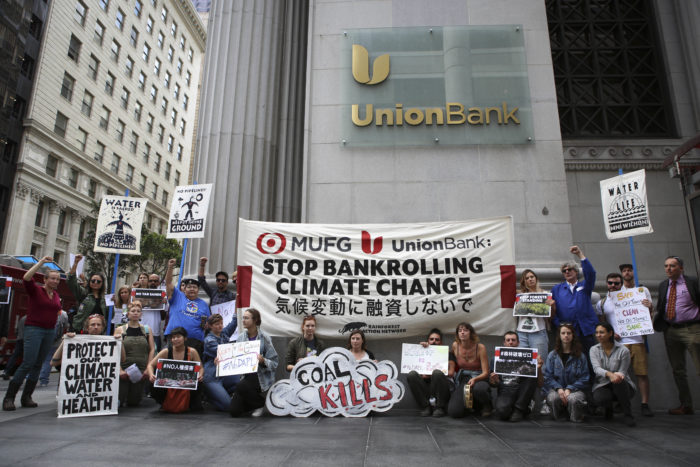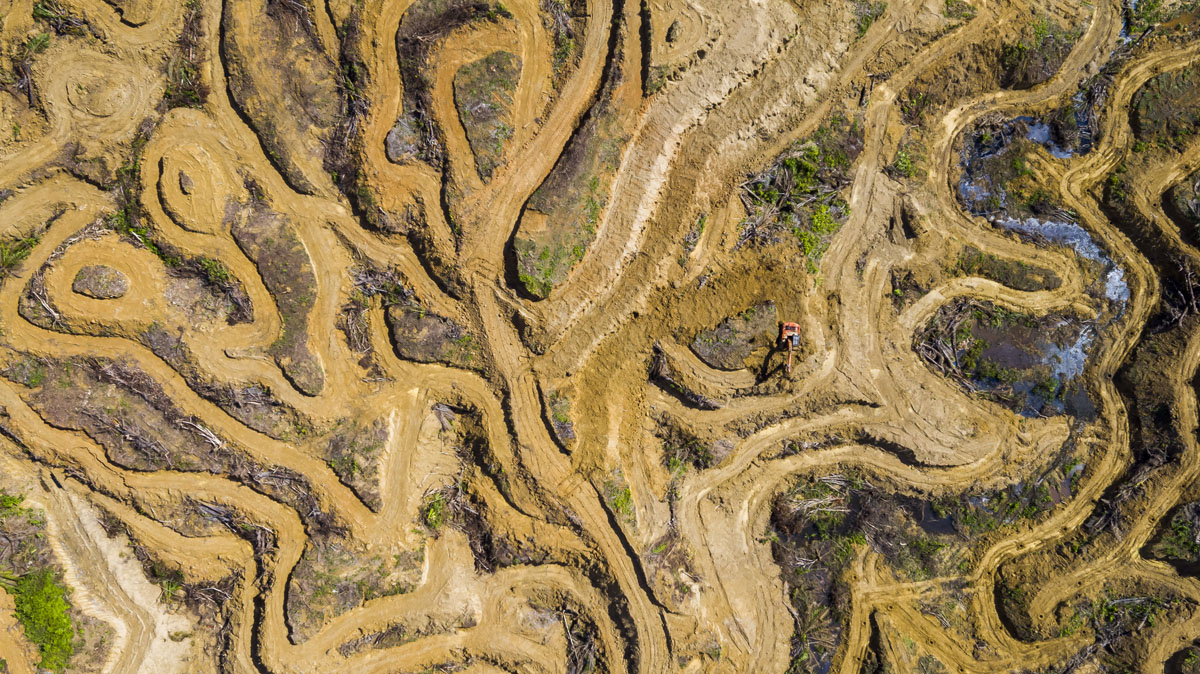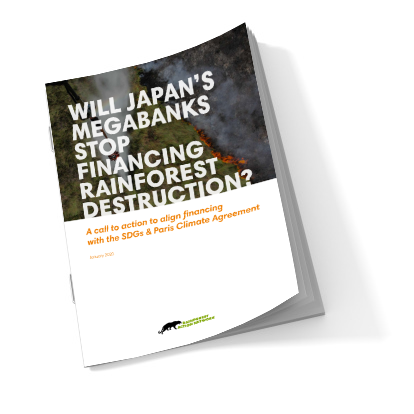Forty percent of global deforestation is the result of land clearing for the production of commodities like beef, soy, palm oil, pulp, paper, and timber products.
Corporations and their long-reaching supply chains, together with the banks and financiers providing the capital, are clearing forests, ignoring Indigenous land rights and other human rights, and further destabilizing our climate to turn the quickest profit.
The biggest banks behind deforestation?

Why? Because banks think it’s a cash cow with promised profits.
The global demand for commodities like palm oil keeps on growing, so they expect financing these projects will bring them all the return they want. And what’s even better: most people don’t know that they’re bankrolling deforestation, unlike fossil fuels, which banks are also financing in massive amounts.
Chase, MUFG and more have been able to keep pumping out more money to these industries without being held accountable for the consequences of their financing or investments — like the destruction of our last rainforests and the exploitation of Indigenous Peoples and communities who depend on these forests.
We are paying the price for their profits.
But just like MUFG, Chase is putting hundreds of millions of dirty dollars into the deforestation business too, including massive cattle ranches in the Amazon. Industrial agribusiness means big profits for a bank like Chase: Our investigations have shown that since the Paris Climate Agreement in 2016, Chase financed half a billion dollars into cattle ranches directly linked to illegal deforestation in the Amazon.
This must end now. This is why we must follow the money and cut it off.
RAN and our allies demand action from some of the world’s most influential global banks and brands to stop the expansion of industrial soy, beef, pulp, and palm oil plantations into the forests of Indonesia and the Amazon –– some of the most critical forests to counter the climate crisis. The peatland rainforests of Indonesia in particular are massive carbon sinks; burning them to clear land for even more plantations not only destroys one of the most biodiverse ecosystems but blasts tons of carbon dioxide into the atmosphere, accelerating the already urgent climate crisis.
Follow the money.
That’s why RAN and our allies have opened up a new front in our decades-long fight against deforestation: The multinational banks of Europe, Asia, and the U.S. that are bankrolling massive deforestation operations in the last rainforests of Indonesia, the Amazon and the Congo Basin — some of the most biodiverse and critically important rainforests on Earth.From undercover field investigations and case studies to supply chain research and innovative online platforms, from partnering with organizations on the ground to negotiations in corporate boardrooms, from high-profile media exposure to our dedicated supporters taking action online and in the street — we successfully shine a light into the dark corners of global deforestation. By naming names and exposing bad actors we pressure some of the most influential banks into changing their financing policies and practices. We are campaigning on deforestation from two sides: Targeting the actual forest destroyers and those who are lending and investing billions of dollars to them. And it’s a win-win, because if one side falls, the other one will be soon to follow.
We must make doing business with companies that are complicit in deforestation and human rights abuses untenable. Giving money to the world’s worst forest destroyers has to become a political no-go for the prestigious mega banks.

